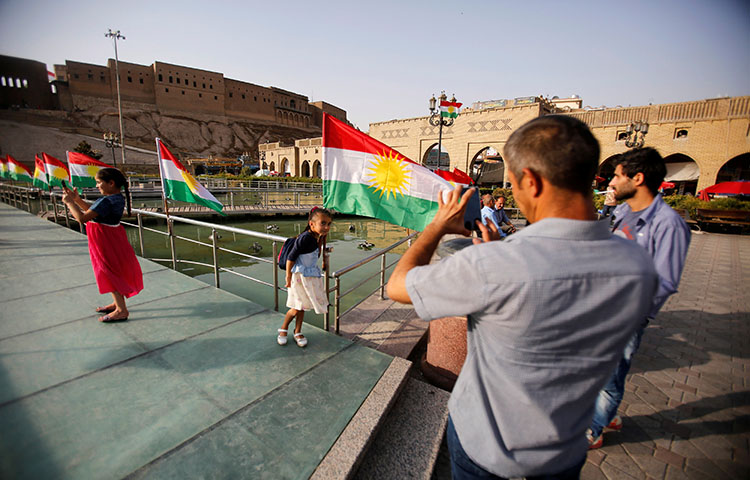Beirut, August 30, 2017–The Kurdistan Regional Government in northern Iraq should allow the independent media outlet Nalia Radio and Television (NRT) to resume broadcasting, the Committee to Protect Journalists said today.
Local Kurdish authorities in Erbil, a city in northern Iraq, on August 28 blocked NRT’s local broadcast signal for one week ahead of a regional referendum on Kurdish independence, which is set to take place on September 25, according to media reports.
Kurdish authorities said the news outlet violated distribution regulations and licensing procedures, and aired material from a channel that was not legally registered, according to news reports.
Monday’s broadcast block came after security officials affiliated with the ruling Kurdistan Democratic Party on August 22 denied NRT journalists entry into their studios in Erbil. According to media reports, this prevented the network from airing a program about the “No for Now” campaign, which calls to delay the Kurdish independence vote.
“If the Kurdish authorities in northern Iraq want to be seen in the eyes of the international community as a champion of free press they should start by allowing media to cover all opinions on next month’s independence referendum,” said CPJ Deputy Executive Director Robert Mahoney from New York. “Kurdish authorities should allow NRT to resume broadcasting immediately.”
NRT has frequently drawn the ire of authorities of the two main political factions–the Kurdistan Democratic Party and the Patriotic Union of Kurdistan–that are vying for influence in northern Iraq, CPJ research shows.
NRT’s founder and financial backer, Kurdish businessman Shaswar Abdulwahid, is also at the forefront of the “No for Now” movement, the creation of which he announced in an interview that aired July 25 on NRT.
While “No for Now” has launched a television channel with Abdulwahid’s backing, the two outlets are separate entities with different staff and offices, the NRT deputy newsroom manager Soran Rashid told CPJ.
Rashid told CPJ that the Kurdish authorities did not have a valid cause to cut off NRT’s broadcast as the channel’s license is up to date. He also denied that NRT had broadcasted material from an unlicensed television channel as the Kurdish authorities claimed.
The Kurdistan Regional Government’s press officer in Washington D.C. told CPJ Kurdish officials have previously stopped television channels affiliated with political factions from broadcasting. In this case, however, the press officer said, the NRT media organization had failed to keep up with its licensing fees.
